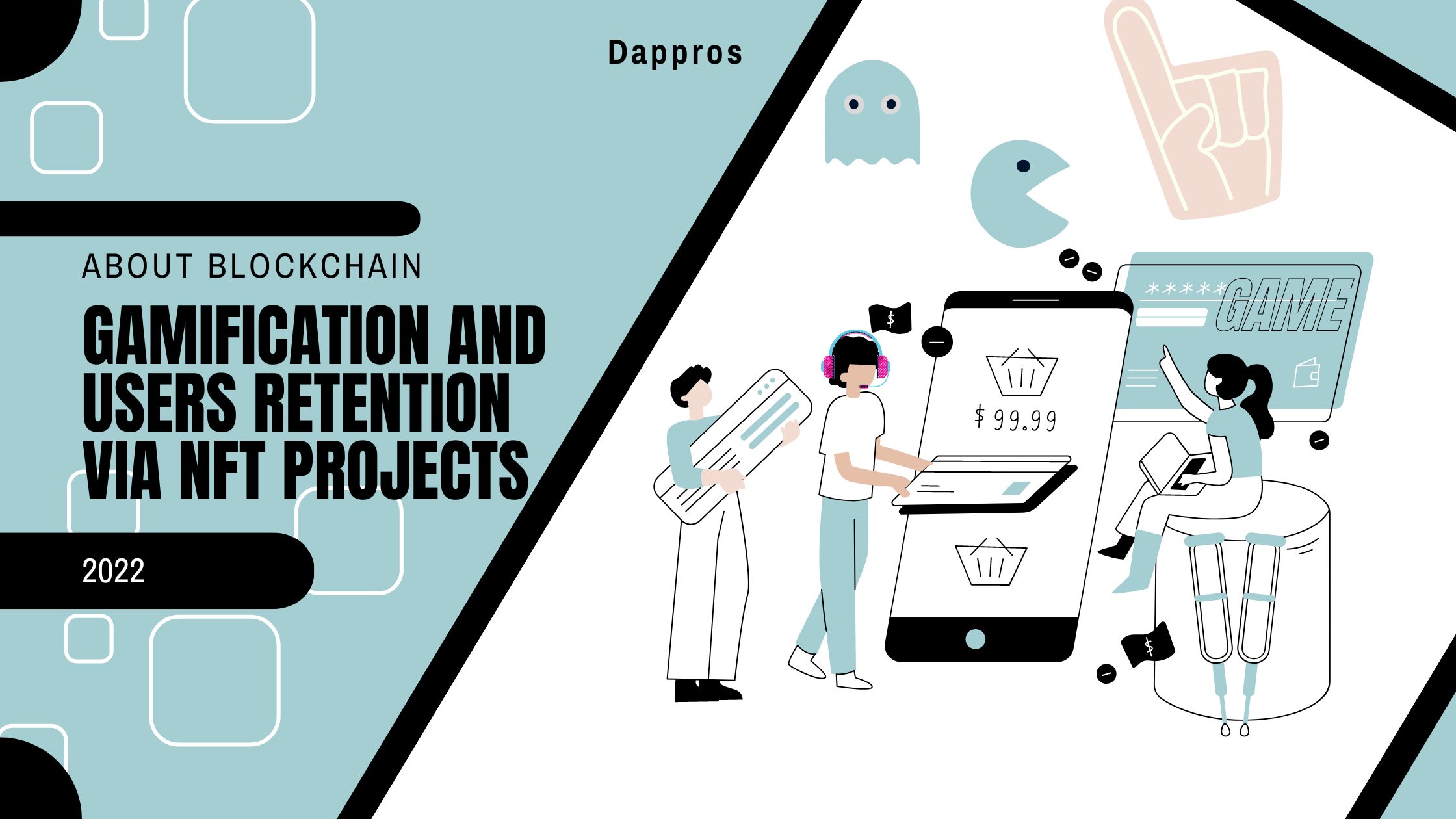The present and future of Technology can be clearly seen progressing through the introduction of Blockchains, NFTS, and Tokenization. These 3 have taken the world of technology by storm and have become a rage amongst techies.
One cannot help but appreciate the manner in which NFTs and Metaverse and their likes have created an unending thrill amongst users. The international market for the gaming industry is growing at lightning speed and has been estimated to make profits of $108.9 billion.
About Blockchains and More:
Although analysts have never been able to foresee a great future for blockchain technology due to the devastating results of video-game business in the past, technology conglomerates envision a much more fruitful and commercial outcome from the same.
NFTs [Non-Fungible Tokens] are virtual currencies for playing games online. Initially, users remained skeptical about making any such transaction as it involved real money but gradually with better payment security introduction, the games are played all over the globe.
- In 2022, worldwide spending on blockchain solutions will reach $11.7 billion.
- The international blockchain technology market is said to accumulate $20 billion in revenue by 2024.
- The total number of registered blockchain wallets in the second half of 2021 was beyond 70 million.
- Blockchain can lessen 30% of banks’ total infrastructure costs.
- Finance companies can save up to $12 billion a year from using blockchain.
- Total expenditure on integrating blockchain into healthcare will rise to $5.61 billion by 2025.
- The FBI owns 1.5% of the world’s total bitcoins.
- 55% of healthcare applications will have adopted blockchain for commercial deployment by 2025.
- 60% of CIOs were on the brink of integrating blockchain into their infrastructure by the end of 2020.
The Formula For Users Retention:
Asset Reusability:
Fundamentally, the blockchain is an open database that stores data and can run programs. A blockchain-based ecosystem enables developers to allow players to reuse their characters and virtual items across a variety of games. Also, new games can receive already existing assets from current ones.
Asset Ownership:
This one changes the entire scenario of virtual assets being only the operator’s property. Instead, players can now own their credits, items, etc., unlike the traditional games. The ball is easily in the players’ court. Perhaps, it increases the credibility of such games and walks past the age-old myth of virtual games being unreliable.
UGC [User-generated Content]:
While most of us have heard of UGC in the context of YouTube and its likes, users should be aware of this feature available in blockchain gamification as well. The contents can now be saved by the users and in turn, help operators generate new ones. Therefore, users have the freedom to modify some content as opposed to the older games.
Rule Transparency:
Blockchain technology has become more open about the rules of the games. In traditional games, the rules used to remain hidden on the server which gave room to unnecessary doubts amongst users. So, in the newly launched games, the rules are kept as transparent as possible allowing users to play with much trustworthiness. This has been made available to third-party operators for better functioning.
However, one should keep in mind that every new game does not provide such a feature. Gaming industry experts have shown enough faith in virtual games by adding rewards for players and updating them constantly. Over and above the aforementioned advantages, there is a direct benefit enjoyed by banks via trade & investment-backed games.
Users’ Most Favourite Games:
Data theft has been a matter of great concern since the time computers were invented. With Bitcoins disrupting the world of technology, it became safer for users to trust cryptocurrencies.
Blockchains use Non-Fungible Tokens for users to make an in-game transaction. This purchase is not the ones we make on e-commerce portals via the usual currency, rather it uses cryptocurrencies that are unique in nature.
Now, it is crucial to understand the mechanism of the most popular games played by people around the globe.
If you wish to relive the Feudal days or want to take a peek into how it looks like to be a land owner then this game is for you. Here, the users can buy lands and deal with governance issues at the district level. With every purchase, the currency Mana gets burnt or reduced. This is more like a Metaverse.
As the website explains, this game gives a feeling of absolute ownership to its users. It says,” collect rare cards, build your deck and sell your cards to other players.” This kind of USP adds more value to it and attracts users endlessly.
As the name suggests, this game involves leasing spacecraft in the metaverse using NFTs. How surreal does it sound to the users? It makes the users feel like they are traveling in another world altogether.
Defi Kingdoms, fondly known as DEX [decentralized exchange], is a utility NFT game that uses jewels as its native currency. Users can get some good information on Liquidity Pools [LP]. This game falls under the category of trade & investment.
This game is quite similar to the earlier ones, it gives artists and creative people a chance to build and buy anything using NFTs. It shows a marketplace too where users can make virtual purchases and play with other users.
Evidence for the Concept:
Daily Technological advancements keep on providing new apps and updates. But some apps never see the light of the day. On the contrary, this revolutionary app for the blockchain was CryptoKitties: an online pet collection game where each newborn kitten displayed uniqueness. This game became an instant hit and “it had a significant and crippling impact on the Ethereum network. Regardless of that, CryptoKitties — which is still thriving today — gave the strongest proof of concept of entertainment driving the blockchain’s adoption into the mainstream.”
Decentralization:
Forbes surveyed the feasibility of utilizing a blockchain-based form utilizing alone cryptocurrency, like bitcoin, across various brands or trades. This distributed finance design form the loyalty campaign smooth to run and path, conditional occasion, and increasing more profit to the parties.
A decentralized network will further guarantee that colleagues have more adaptability and choice, which encourages the ruling class to give more. The method is best adapted for more important trades, business (to a degree the Banana Republic, Gap, and Old Navy), or trades that are not quite partners accompanying those from a competing area (like an air carrier firm, and a lodging chain).
A distributed approach shows the future and present mathematical transformation to a few client dependability campaigns. For instance, Singapore Airlines and Delta Airlines have started a blockchain faithfulness campaign, substituting their air 5 accompanying digital tokens that are second-hand for selling purposes.
Authentic and Just Methods
Gamification is all about charming users through new rules, risks, and reward systems. Unluckily, concentrated experts are likely to hand up accompanying rules that are only in consideration of them. Blockchain electronics impels trades to design and trail the set rules and form impartial risk and reward mechanisms. Decentralized descendants are a few instances concerning this. CloseCross, an individual of Espeo’s customers, is part of this flow.
The use of cryptocurrencies even admits for endowment, like those from dependability programs, to transfer more monetary utility to consumers. The idea of mathematical holding likewise influences more value to consumers’ rewards. Users may be certain that through specific arrangements, everybody will benefit from gamified campaigns.
According to a PwC survey, almost 70% of consumers quit dependability programs when it asks for private analyses. This should, especially accompanying the growing cases of connected to internet correspondence stealing. Blockchain can lower such risks. Since obscurity is an individual of the basic visage of mathematical currencies, partners might not determine their private facts. Or, if the need stands, blockchain can maintain their details more securely.
Blockchain records are sufficiently see-through and capable of being traced, making it even hard for the killing unofficial undertakings. The PwC study further established that 72% of faithfulness campaigns are fatalities of scams and counterfeit reductions to gain dependability points for purchases they never made. Using blockchain science to consumer faithfulness campaigns would allow brands to path faithfulness points in real-opportunity and transfer lures to their customers in a more excellent manner.
Closing Thoughts
A lot of developments and improvements are on the fore as far as gamification via blockchains, NFTs, and tokenization is concerned. On the other hand, if we take a good look at the success rate of the above-mentioned games then players can heave a sigh of relief and ‘make hay while the sun shines. The future of virtual games is quite bright and huge.


